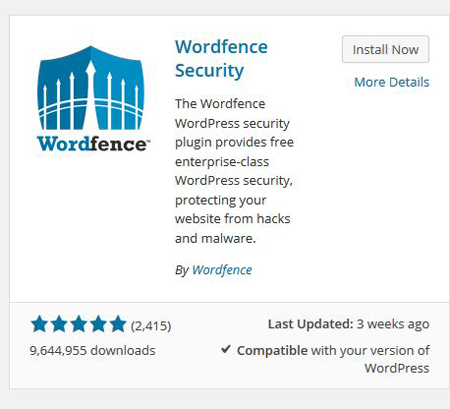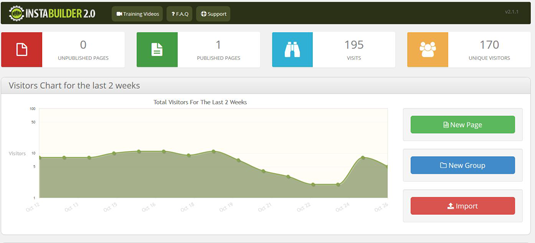7 Plugins Every WordPress Site Should Use

As Web professionals already know, having a fast, secure and user-friendly site is crucial to better search positioning, user engagement and in driving conversions.
Today we are going to look at a few WordPress (WP) plugins that will help in meeting those goals.
1. WP Smush
Large images are a speed killer but once you identify the issues, fixing them is pretty straightforward. If you use a tool like GTMextrix you will be given a list of image issues.

Instead of manually adjusting the photo sizes, use WP Smush for bulk-file size reduction. Once you do, be sure to re-run the scan to find and fix any images that are still too large. The screenshot above is from my site after using the plugin. I would like to note that this plugin does not allow you to specific image dimensions when reducing size, if you need a plugin with those features as well, I have heard great things about Imsanity.
2. W3 Total Cache
Aside from reducing file sizes, there are numerous additional factors that influence the speed of your website and with countless studies indicating the negative impact of slow loading times, site speed should certainly be a focus when setting up a new WP site. W3 Total Cache was built as a tool to optimize numerous settings within a WP site, you can read the specifics on the plugin page but to summarize, this plugin stores a version of pages visited and serves those pages to other visitors seeking the same content. By saving and serving a copy of the page, you eliminate the need for multiple database queries, saving resources and expediting content delivery times.
3. WordFence
A hacked site will be flagged, demoted and leave you with a mess to clean up. As the old saying goes, "an ounce of prevention is worth a pound of cure," this plugin offers preventative measures to keep your site safe. This plugin can actively identify and prevent attacks from known malicious networks, can restrict access based on the country (premium version) of the user, all while scanning for malware issues on your site. WordFence also has hacking prevention features such as two-step aunthentication.

4. Yoast SEO
This plugin has been a staple in WP SEO for years and although it is missing some features that would be great to have, this free plugin still offers a ton of value. This plugin is covered in great detail in the Beginners' Guide to WordPress SEO but here are a few useful features:
- Ability to create a separate page title to display in the search engine result pages (SERPs)
- Easily add Meta Descriptions to your posts
- Provides a snapshot of your compliance with basic SEO steps.
The bad: Yoast looks at how well a page is optimized for a single keyword. Today, Google looks at the overall topic of a page and adding a single keyword to every element on your page as Yoast indicates you should can lead to over optimization. While several of the features are great, be sure to diversify your keywords and use LSI keywords in the headings and body copy.
5. Instabuilder
This is a paid plugin ($97 for unlimited use) that adds a drag-and-drop landing page builder into your site. The interface is similar to that found on Instapage, but the sites built on Instabuilder are fully responsive without additional modifications needed.

In addition to the builder, you are able to track your stats and split test landing pages with the stats viewable in your dashboard.
The single $97 fee beats paying monthly and with unlimited use, this is a plugin that you can use on every site. I will admit, the landing page they use to sale the plugin could have been better executed but, overall still a great plugin.
6. MailMunch
Getting people to your site is important but once you get them there, you need to move them toward your ultimate conversion goal. One way to advance visitors toward your final goal is through micro conversions such as downloading more information, signing up for emails or requesting a product demo.
Mailmunch is a plugin that allows you to create forms and popups that guide people toward these micro conversions. This plugin also allows for split testing of form types, giving you the ability to continually improve your lead-generation efforts. As you can see below, this plugin allows you to create various types of email collection forms.

7. Social Sharing Plugin (Take Your Pick!)
Encouraging people to share your site socially can result in steady, targeted traffic that you didn't have to generate on your own. In order to make sharing your content as easy as possible, you should use a plugin that keeps sharing buttons within easy reach of your visitors. There are several good plugins for this, here are just a few options:
- ShareThis: a free plugin with easy short code installation.
- Easy Social Share Buttons for WordPress: a $19 plugin but great if you are looking for a highly customizable look and feel.
- Shareaholic: another free option, easy to install and works well on mobile devices as well.
Aside from the standard social sharing options, you could also use something like Social Locker. This plugin allows you to hide content from a user until they share your page. This can be annoying so use it in moderation and only to lock additional downloadable assets or vital content.
According to BuiltWith, the WordPress CMS is the platform used by 50 percent of the entire Internet. I think it is safe to say that WP is here to stay and as such, the number of high-quality plugins that boost usability, speed and conversion readiness are going to grow accordingly.
With that being said, I am sure I have missed at least a few awesome plugins for WordPress, so please share your favorite plugin and its purpose below!
Read Next: How to Use WordPress Plugins









